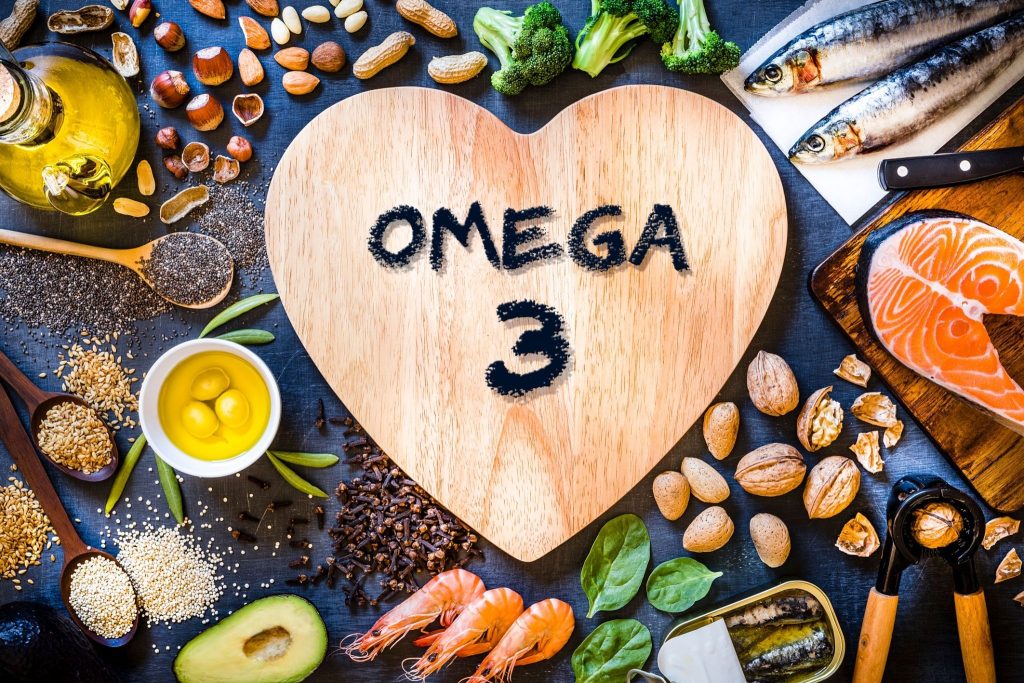Everybody needs healthy fats in their diets. These fats such as the omega 3 and omega 6 essential fatty acids are what helps to improve your immune system, nerves, and brain health.
Although you can easily get these from supplements, it is also very important that you eat foods rich in these fatty acids.
These healthy fats are easily available in fatty fish such as salmon and mackerel. But for vegans, they can also get their omega 3 and 6 from numerous sources. This is what we’ll talk about today, so you have an idea on the best sources of omega 3 & 6 for vegans and vegetarians. Let’s get right into it!
Best Vegetarian Sources Of Omega 3 & 6
If you follow a plant-based diet, you may be wondering just how you can get your omega 3 and 6. But the thing is that these fatty acids are readily available in certain nuts, seeds, and even some beans.
You can get your daily dose of omega 3 and 6 as a vegan by consuming these foods. Learn more about these below!
1. Chia Seeds
These small seeds are famous for their numerous health benefits, with omega 3 and 6 as some of their many nutritive components.
Chia seeds are high in omega 3, and one ounce gives you up to 4,915 milligrams of this fatty acid. Moreover, these seeds have ALA, which is important for managing your HDL cholesterol level and reducing blood sugar.
You can also get your protein, fiber, and magnesium needs from chia seeds. Add some of these seeds to your smoothie, yogurt, oatmeal, and salad. You can also whip up a delightful bowl of chia pudding for dessert, which is highly nutritious and tasty.
Another thing you can do is to use chia seeds as an egg replacement. Grind it up and combine a tablespoon of ground up chia seeds with 3 tablespoons of water as a vegan egg substitute for your baked goodies.
2. Algal Oil
You can easily get this oil from algae, which is also a great source of omega 3, 6, EPA and DHA for vans.
Moreover, the amount of omega 3 you can get from algae is nearly comparable to what you can get from seafood. So, if you are plant-based, then you may want to consider adding algal oil to your diet for your omega 3 and 6 supply.
Additionally, algal oil supplements contain up to 500 milligrams of EPA and DHA combined. This is just about the recommended 300 to 900 milligrams per day for adults.
You can easily find algal oil supplements from stores and pharmacies. In liquid form, you can conveniently add algal oil to your smoothie or drink to increase its healthy fat content.
Algal oil supplements are easy to find in most pharmacies. Liquid forms can also be added to drinks or smoothies for a dose of healthy fats.
3.Brussels Sprouts
A cruciferous vegetable, Brussels sprouts are healthy sources of vitamin K, fiber and omega 3 fatty acids. Half a cup of this vegetable has about 44 milligrams of ALA. Thus, you can get your omega 3 from this vegetable by simply including it in your daily diet.
However, if you want to increase the omega 3 component of Brussels sprouts, you can cook it to get about 3 times more of these fatty acids. The same serving of cooked Brussels sprouts give you an impressive 135 milligrams of omega 3.
Among the best ways to enjoy cooked Brussels sprouts include steamed, stir-fried, blanched, or roasted.
4. Walnuts
If you want healthy snacks to munch, then you should consider adding walnuts to your diet. These nuts are packed with healthy fats, as well as omega 3 fatty acids in the form of ALA. You will love how these nuts can help protect your heart while improving brain health.
In fact, walnuts are great for enhancing memory, motor development, and preventing Alzheimer’s disease. Moreover, walnuts contain healthy fatty acids that support a healthy heart and lower LDL cholesterol levels.
Simply add some chopped walnuts to your oatmeal, top some on your yogurt, or just munch them on their own for a quick, pick-me-up or afternoon snack.
5. Hemp Seeds
Next up in our best vegetarian sources of omega 3 are hemp seeds. Also known as hemp hearts, these seeds are packed with as much as 6,000 milligrams of ALA per 28 grams or one ounce of serving.
You can eat it in seed form or take it in an oil form, which is more common as supplements. When taken as seeds, you can sprinkle some on your yogurt or smoothie. This adds some crunch and flavor to your meals while boosting the omega 3 content.
6. Perilla Oil
This is a type of oil obtained from perilla seeds. It is typically used in Korean cuisine and serves as either a cooking oil or condiment. Perilla oil is flavorful and versatile, while providing a good amount of omega 3 fatty acids at the same time.
A tablespoon or about 14 grams of this oil contains up to 9,000 milligrams of omega 3 fatty acids in ALA form. You can use this oil as a dressing or flavor enhancer, which boosts the health benefits. This is the best way to prevent the oxidation of the polyunsaturated fats in the oil, which occurs when it is heated.
If you prefer to take the oil in capsule form, you may also do so. This offers a more convenient means of getting your omega 3 from this oil, especially when you are on the go.
7. Flax seeds
And last but not least, we have flax seeds. These are nutritional powerhouses that boast as much as 6,388 milligrams of ALA, a type of omega 3 fatty acids. You can take these in seed form or as oil, which may be in capsules.
Since flax seeds are quite versatile, you can simply sprinkle these into your oatmeal, porridge, or add into your baked goodies. You can also grind them up and incorporate them into your smoothies. Mild-flavored and with a somewhat nutty taste, flax seeds boost the flavor profile of any dish.
8. Omega 6 Vegan Sources
As for omega 6, you can easily find these in about every nut, seed, and oil. But among the best sources of linoleic or omega 6 fatty acids are sunflower oil, cottonseed oil, safflower oil, and soybean oil.
Unfortunately, these are commonly found in processed foods. So, it is best to limit your intake, especially of omega 6 to keep the balance of both types of fatty acids – omega 3 and 6 – in check.
Omega 3 And 6 For Vegans
You have just learned more about the vegetarian sources of omega 3 and 6. Now, it is worth noting that the omega 3 fatty acids from these foods are called ALA or alpha-linoleic acid. On the other hand, the omega 6 fatty acids are called linoleic acid or LA. These are both essential for a healthy immune system, eyes, nerves, and brains.
Vegans can easily get these essential fatty acids from seeds such as chia seeds, hemp seeds, and flax seeds, as well as other sources including walnuts and Brussels sprouts. However, you will need to add in some good DHA sources such as algal oil since the ALA takes time to be converted into DHA and EPA, unlike with fatty fish and non-vegan sources of omega 3.
Additionally, you can also take some vegan omega 3 and 6 supplements, which are readily available in the market. You should be able to find good brands that offer the right amount of these fatty acids per serving. This way, you can get more DHA and EPA since only about 5 percent of the ALA is converted by your body to EPA while under 0.5 percent becomes DHA.

